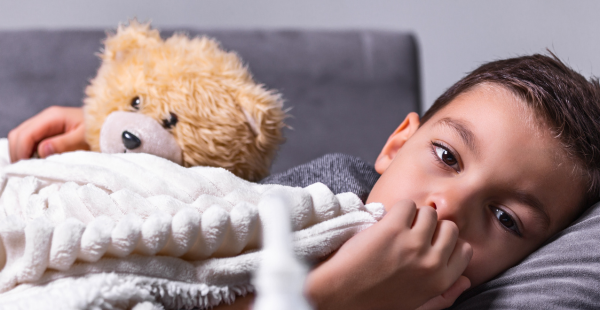The pinworm, or Enterobius vermicularis, is a small parasitic worm that can live inside the human lower intestine. Only 3 mm to 10 mm long, it causes an intense itching in the area of an infected person’s anus, especially at night.
Pinworms usually infect people as a result of overcrowding in schools and family groupings or due to unsanitary living conditions and poor food preparation. However, they usually don’t indicate poor personal hygiene. They can be commonly found in institutional settings such as dormitories and mental health hospitals or homes.

They’re the most common parasite to affect North American children, with estimates that one-third of Canadian children will have pinworms at some time in their life.
At night, the female worm leaves her home in an infected person’s lower intestinal tract. She slips out of her host’s rectum and lays eggs in the folds of skin around the edge of the anus. The eggs are deposited in a sticky, jelly-like substance that, along with the wriggling of the mother pinworm, causes severe itching. The eggs can be transferred to the fingers, either by directly scratching the anal area or by way of clothing or bedding. They can then be carried to the mouth and swallowed or can be transmitted to others by touch.
Since the eggs can survive for up to 20 days at normal room temperature, they might be found in bedding and clothing. If these materials are shaken, it is even possible to spread the eggs in the air and swallow them directly. Once eaten, the eggs hatch in the intestine and develop into adult worms within 2 to 6 weeks. Adult worms can live for approximately 3 months and an adult female can lay more than 10,000 eggs in her lifetime.
Pinworm eggs attached to the skin around the anus hatch within 6 hours, and the emerging larvae migrate back into the anus to reside and mature within the lower intestine. For the eggs that fell off onto adjacent clothing or bedding, they can survive for as long as 3 weeks at room temperature–waiting for unsuspecting hands to carry them into the mouth. Humans are the only natural host of pinworms.
Pinworms cause no harm or discomfort apart from anal itching, and treatment cures most cases. The key is to break the 6-week cycle of pinworm reinfection by killing any live pinworms and preventing the ingestion of eggs. A diagnosis should be confirmed before treating with medications.
Medications kill only the adult worms and have no effect on developing eggs and larvae. The prescription of choice is mebendazole* and the non-prescription medication of choice is pyrantel pamoate. Both mebendazole and pyrantel pamoate are given as a single dose and repeated in 2 weeks to kill any newly ingested eggs.
Since the eggs can be easily spread, everyone in the household must be treated with the medication, even if they do not have any symptoms. Reinfection is still common because the eggs can survive outside the body for 3 weeks.
It is essential to machine wash all bedding, clothing, and toys in order to kill all the eggs and prevent reinfection. You can relieve itching in the anal area with petroleum jelly or anti-itching creams and ointments. Wash your hands frequently, especially after going to the toilet, after scratching, and before eating, and keep your fingernails short to reduce the chance of picking up pinworm eggs.
During the week after treatment, all family members should wear cotton underpants that have been washed in hot soapy water. They should be worn all day and changed twice daily. Children should wear closed sleeping garments or snug underpants to prevent hand contact and contamination of bedding. People who have been infected should shower every morning to help eliminate any eggs on the skin. Wash night clothes, underwear and hand towels daily. Clean bedding often and avoid shaking bed linens and clothing prior to washing.
All material copyright MediResource Inc. 1996 – 2025. Terms and conditions of use. The contents herein are for informational purposes only. Always seek the advice of your physician or other qualified health provider with any questions you may have regarding a medical condition. Source: www.medbroadcast.com/condition/getcondition/Pinworms
Pharmasave uses cookies to provide a personalized experience, analyze traffic, improve site performance, and provide social media features. By using our site, you agree to our privacy policy.